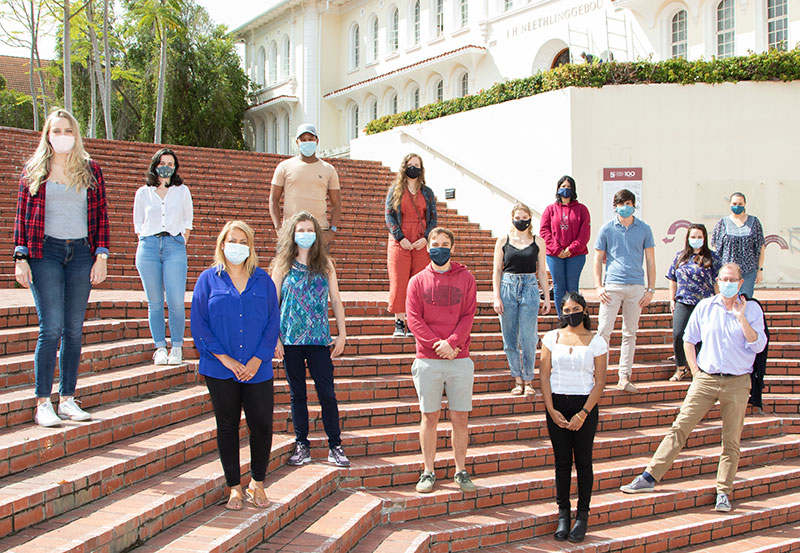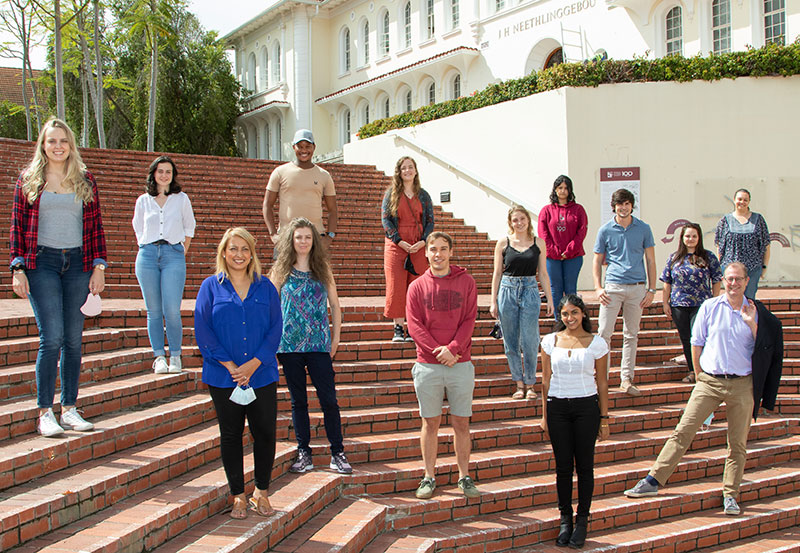Holder: Prof. Florian F. Bauer
Yeast and other microbes: Microbial Ecology and the Future of Wine
Current Research Interests
The Research Chair Program is part of an integrated approach to wine science that combines molecular, cellular and multi-omics biology with traditional wine sciences. Bioinformatics, analytical chemistry, sensory science and multivariate data analysis are essential supporting elements of the program.
The model eukaryote Saccharomyces cerevisiae has been at the centre of much of the group’s research in the past. However, with our growing appreciation of the importance of microbial ecosystems, the group’s recent work has been directed towards a better understanding of wine–associated microbial biodiversity, the interaction between different species of microorganisms, and the application of systems biology tools to multi-species cultures.
Research regarding the functioning of microbial ecosystems has become an increasingly relevant challenge. Microbial ecosystems are at the base of all food chains, and provide essential life-support systems for all macroscopic organisms. Changes in these ecosystems impact all aspects of multicellular life, including plant and mammalian health, agricultural food production and human well-being. In biotechnological research, this new understanding has led to a shift away from the improvement of single species through ever more onerous, but in final analyses intrinsically limited approaches such as synthetic biology, to the harnessing of multispecies consortia or of entire ecosystems. Genetically and functionally diverse microbial communities can certainly be more productive in supporting complex biotechnological and therapeutic applications. Importantly, the functioning of a particular microorganism in monoculture does not predict its functioning within a mixed culture. Therefore, characterizing microbial communities, to the extent that would empower us to manipulate them, requires investigations to take place within an ecologically relevant framework including co-habitant microorganisms.
The team applies several approaches, including the study of one-on-one interactions between different species of yeast, between yeast and bacteria and yeast and algae, as well as the study of larger consortia.
Relevance of research
The research attempts to balance fundamental interests in topics such as the impact of gene regulation in ecological Interactions, with directly applicable, biotechnological approaches such as a better exploitation of natural biodiversity and of metabolic networks to produce desirable metabolites. The fundamental projects aim at providing a basic understanding of relevant molecular and cellular processes, and are part of the global scientific drive to fully characterise and understand living systems. The biotechnological projects, on the other hand, all focus on wine-industry relevant targets such as improving the processing of wines and on helping the SA and global wine industries to produce wines of better quality.



